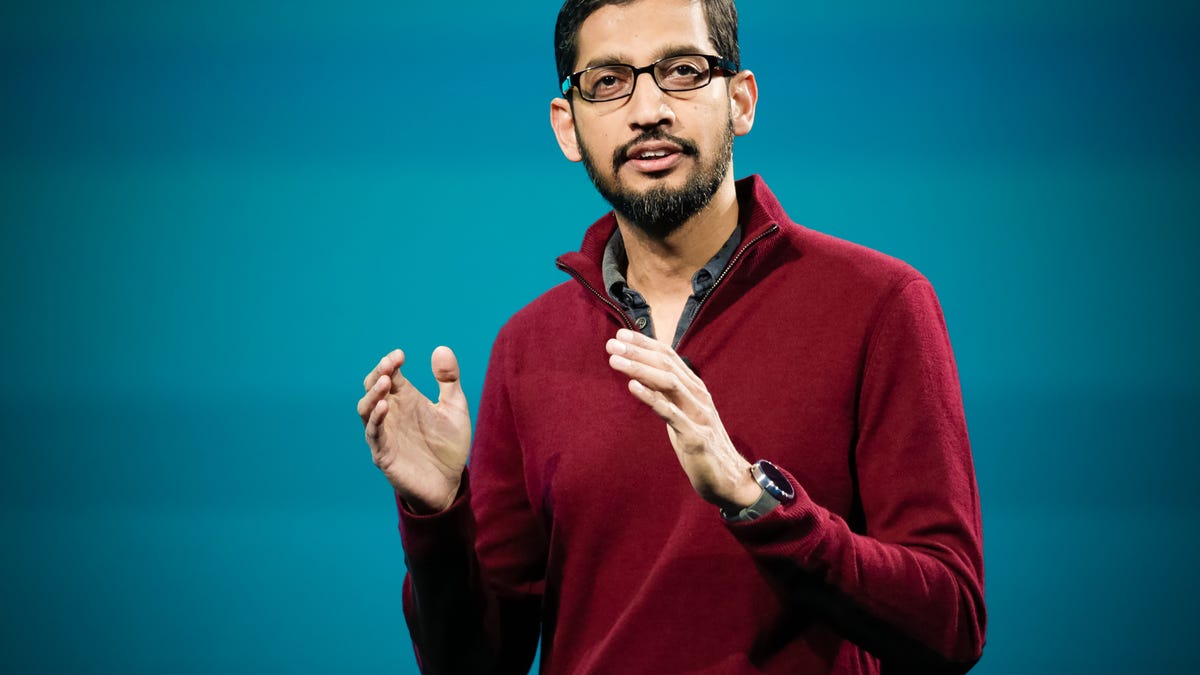Google's Pichai calls for federal privacy legislation over patchwork of state laws
Washington has discussed, but not passed, privacy legislation.

Sundar Pichai, chief executive of Google, says the federal government should take the lead on privacy law.
Google CEO Sundar Pichai on Monday encouraged the US government to set a federal privacy standard, a call that comes as legislators in Washington struggle to address the issue.
Pichai said Europe's privacy law, known as the General Data Protection Regulation, is a useful model for the US in considering legislation to protect personal data. The 3-year-old law governs how and what companies can do with data they collect on residents of the EU.
A common privacy framework would help businesses, Pichai said during an interview at the WSJ Tech Live conference.
"I would really like to see a federal privacy standard in the US," he said. "I'm worried about a patchwork of regulations in states that adds a lot of complexity."
The comments come amid discussions of federal privacy legislation in Congress that have yet to result in a law. That's left states to fill the void, a piecemeal approach that creates costly and complex requirements. The California Consumer Privacy Act, which took effect Jan. 1, 2020, is widely considered the most comprehensive state law, covering a host of data that can be used to identify individuals.
Google is one of the largest collectors of personal data on the web. The company records your searches and the videos you watch on its YouTube service. It also logs where you go through its Google Maps app. Last year, it began automatically deleting that data after 18 months
Pichai is also chief executive of Alphabet, Google's parent company.